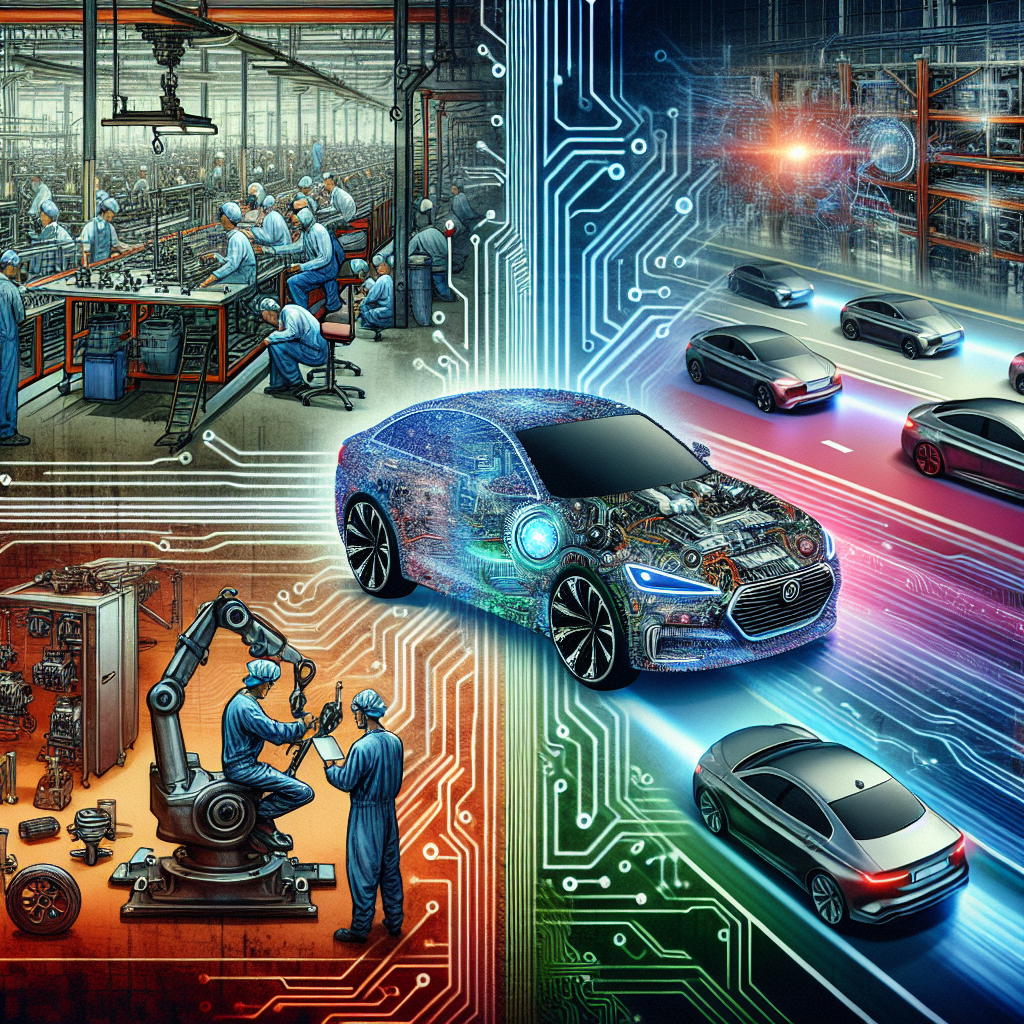The automotive industry is undergoing a major transformation with the integration of artificial intelligence (AI) technology. AI has the potential to revolutionize the way we drive, maintain and interact with our vehicles. From autonomous driving to predictive maintenance, AI is reshaping the entire automotive ecosystem.
One of the key areas where AI is making a significant impact is in the development of autonomous vehicles. These self-driving cars rely on AI algorithms to perceive their environment, make decisions and navigate safely on the road. Companies like Tesla, Google’s Waymo, and Uber are leading the way in developing autonomous driving technology, with the goal of reducing accidents, traffic congestion, and emissions.
AI-powered systems in autonomous vehicles use a combination of sensors, cameras, and machine learning algorithms to detect obstacles, interpret road signs and signals, and make split-second decisions. These systems can process vast amounts of data in real-time, enabling vehicles to react quickly to changing road conditions and avoid potential accidents. As a result, autonomous vehicles have the potential to revolutionize transportation by making it safer, more efficient, and more accessible to people of all ages and abilities.
In addition to autonomous driving, AI is also being used to improve vehicle safety and performance. Advanced driver-assistance systems (ADAS) such as adaptive cruise control, lane-keeping assist, and automatic emergency braking are becoming standard features in newer vehicles. These systems use AI algorithms to analyze data from sensors and cameras to help drivers avoid collisions, stay in their lanes, and navigate traffic more safely.
Another area where AI is revolutionizing the automotive industry is in predictive maintenance. AI-powered software can analyze data from sensors and diagnostic tests to predict when a vehicle is likely to experience a breakdown or component failure. By identifying potential issues before they occur, AI can help drivers and mechanics take proactive measures to prevent costly repairs and downtime.
Furthermore, AI is also being used to personalize the driving experience for consumers. Voice-activated assistants like Amazon’s Alexa and Apple’s Siri are being integrated into vehicles to provide drivers with hands-free access to navigation, entertainment, and communication services. These AI-powered assistants can learn a driver’s preferences and habits over time, providing personalized recommendations and suggestions to enhance the driving experience.
Overall, AI is transforming the automotive industry by improving safety, efficiency, and convenience for drivers and passengers. As AI technology continues to evolve, we can expect to see even more innovations in the automotive sector, including fully autonomous vehicles, intelligent traffic management systems, and personalized in-car entertainment options.
FAQs:
Q: How does AI technology benefit the automotive industry?
A: AI technology benefits the automotive industry by improving safety, efficiency, and convenience for drivers and passengers. Autonomous driving technology, predictive maintenance, and personalized driving experiences are just a few examples of how AI is revolutionizing the automotive sector.
Q: Are autonomous vehicles safe?
A: Autonomous vehicles are designed to be safer than traditional vehicles by reducing human error, which is a leading cause of accidents on the road. AI-powered systems in autonomous vehicles can detect obstacles, interpret road signs, and make split-second decisions to navigate safely on the road.
Q: How does AI impact vehicle maintenance?
A: AI impacts vehicle maintenance by using predictive analytics to identify potential issues before they occur. By analyzing data from sensors and diagnostic tests, AI-powered software can predict when a vehicle is likely to experience a breakdown or component failure, enabling drivers and mechanics to take proactive measures to prevent costly repairs.
Q: Will AI technology replace human drivers?
A: While autonomous driving technology has the potential to reduce the need for human drivers, it is unlikely that AI technology will completely replace human drivers in the near future. AI-powered systems in autonomous vehicles still require human oversight and intervention in certain situations, such as inclement weather or complex driving conditions.
Q: How is AI technology improving the driving experience for consumers?
A: AI technology is improving the driving experience for consumers by providing personalized recommendations and suggestions based on a driver’s preferences and habits. Voice-activated assistants like Amazon’s Alexa and Apple’s Siri are being integrated into vehicles to provide drivers with hands-free access to navigation, entertainment, and communication services, enhancing convenience and comfort while on the road.

